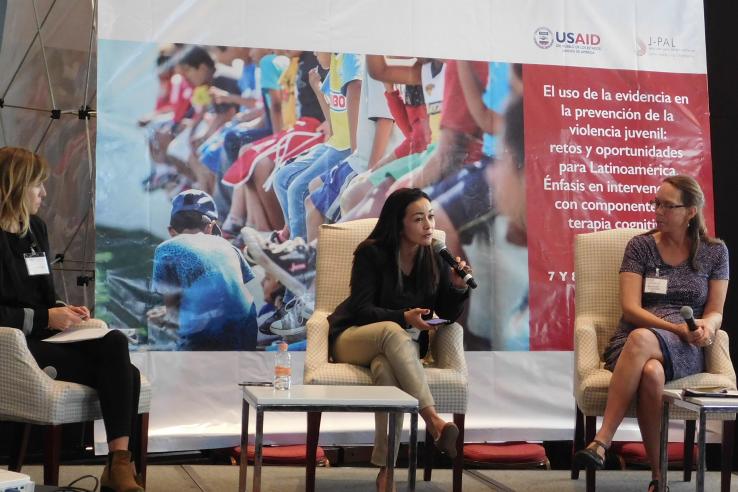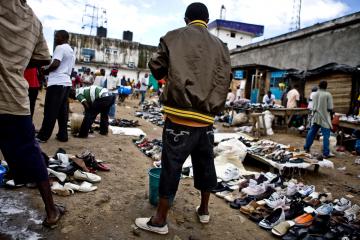Tackling crime and violence in Latin America with cognitive behavioral therapy

Developing new strategies to reduce crime and violence is a top priority for Latin American policymakers. Much of the violence in the region affects young men as both victims and perpetrators. Finding proven ways of working with this population to reduce violent and criminal behavior has been a challenge.
One part of an effective prevention strategy may lie in efforts to slow down the thinking and decision-making processes of young people in high-stakes situations. A growing body of rigorous evidence suggests that programs that draw on the principles of cognitive behavioral therapy (CBT) can reduce criminal and violent behavior among at-risk men and youth.
CBT aims to reduce self-destructive behaviors by teaching individuals to evaluate and modify the way they think and make decisions. Rather than simply teaching good behaviors or nudging participants toward certain choices, CBT provides concrete methods to help participants improve their self-image and relate and adapt to their environment, and practical strategies to help avoid impulsive actions. Because CBT is targeted, short-term, and can often be delivered by non-expert facilitators, it can be a relatively cost-effective policy option.
While there are many opportunities to replicate, evaluate, and ultimately scale programs based on CBT principles in Latin America and the Caribbean (LAC), there are still open research questions that need to be answered to help policymakers understand how to best implement these interventions in the LAC context.
To address these questions and to expand our knowledge of the mechanisms underlying successful CBT interventions, J-PAL’s LAC office partnered with USAID to organize a two-day workshop in Mexico City November 7-8, 2017.
The workshop was an opportunity for implementers working on similar programs throughout the region to learn from case studies of successful, established CBT interventions: Becoming a Man (BAM) in Chicago and Sustainable Transformation of Youth in Liberia. (Read our summary of lessons learned from these interventions.)
At the event, implementers and researchers with ongoing evaluations in the region presented on their experiences and the challenges they faced adapting CBT to their contexts. In small-group sessions, participants received advice and feedback from speakers and J-PAL staff on the implementation and evaluation of their programs. The discussions among participants from Mexico, Honduras, El Salvador, Guatemala, Chile and the United States led participants to identify common barriers to success and better understand what questions to ask when adapting CBT interventions in different contexts.
At J-PAL LAC, we are working on finding new opportunities to expand the use of evidence-based policies to prevent crime and violence. Following the workshop, we are providing technical assistance to three of the organizations that participated, geared towards strengthening the program’s theory of change, tweaking program design, and helping them test and pilot strategies for replication.
Evaluating the impact of these approaches will give us further insight into how CBT can be adapted for the Latin American context. Furthermore, we are working on a comprehensive review of evidence on crime prevention (sponsored by USAID), which we will use as a jumping-off point to identify promising interventions for the region.
Considering the potential ineffectiveness and high cost of some current efforts to control and reduce crime and violence, it’s encouraging to see so much interest in alternative approaches, like CBT, to reduce violence. Despite some concerns that interventions targeting older adolescents and youth in their twenties occur "too late" in life to generate impact, evidence shows that this is not the case. At the workshop, Christopher Jaffe of Youth Guidance, an organization implementing CBT interventions, told participants, “It’s not too late—it’s just the right time.”
Learn more about J-PAL’s work in the Crime, Violence, & Conflict sector and access materials and presentations from the event (in Spanish).
Main photo from left to right: Julia Lendorfer, Observatorio de Desarrollo Regional y Promoción Social (Mexico); Maritza Trejo, Education Program Manager Glasswing International (El Salvador); Katherine Andrade, Technical Advisor on Youth Employability, Catholic Relief Services (El Salvador).
